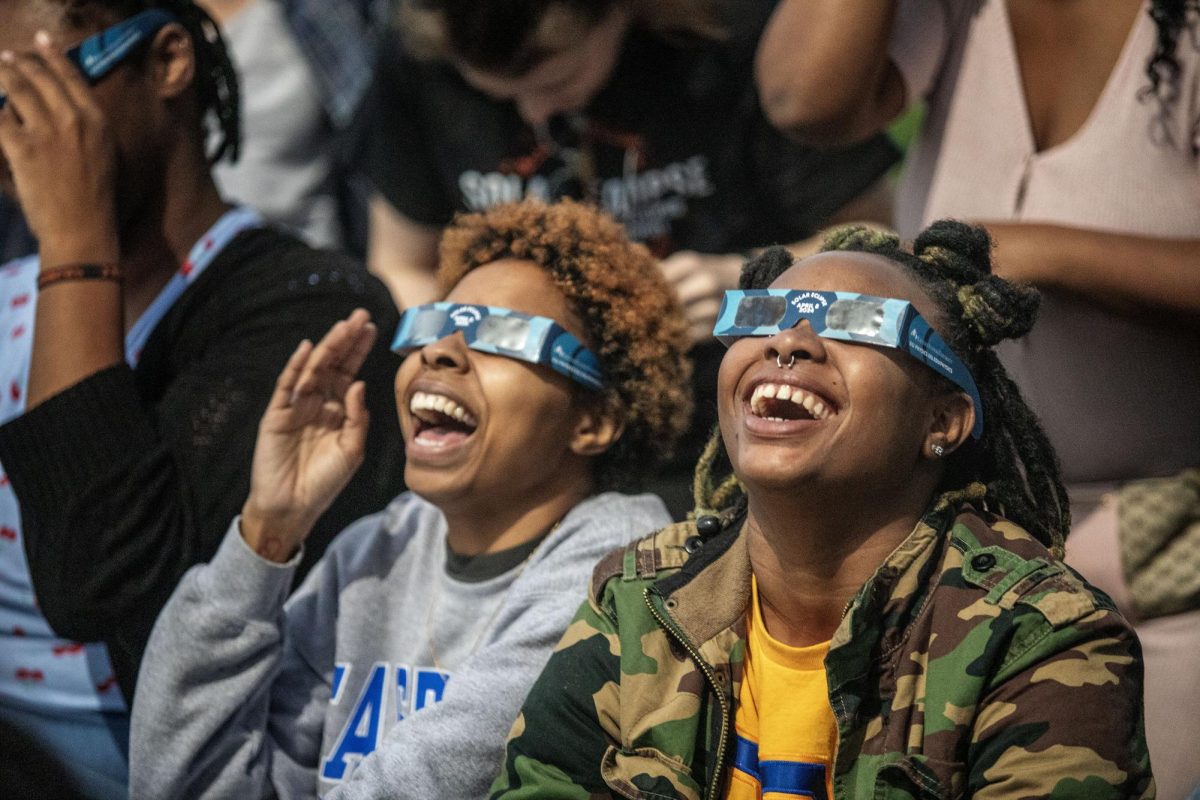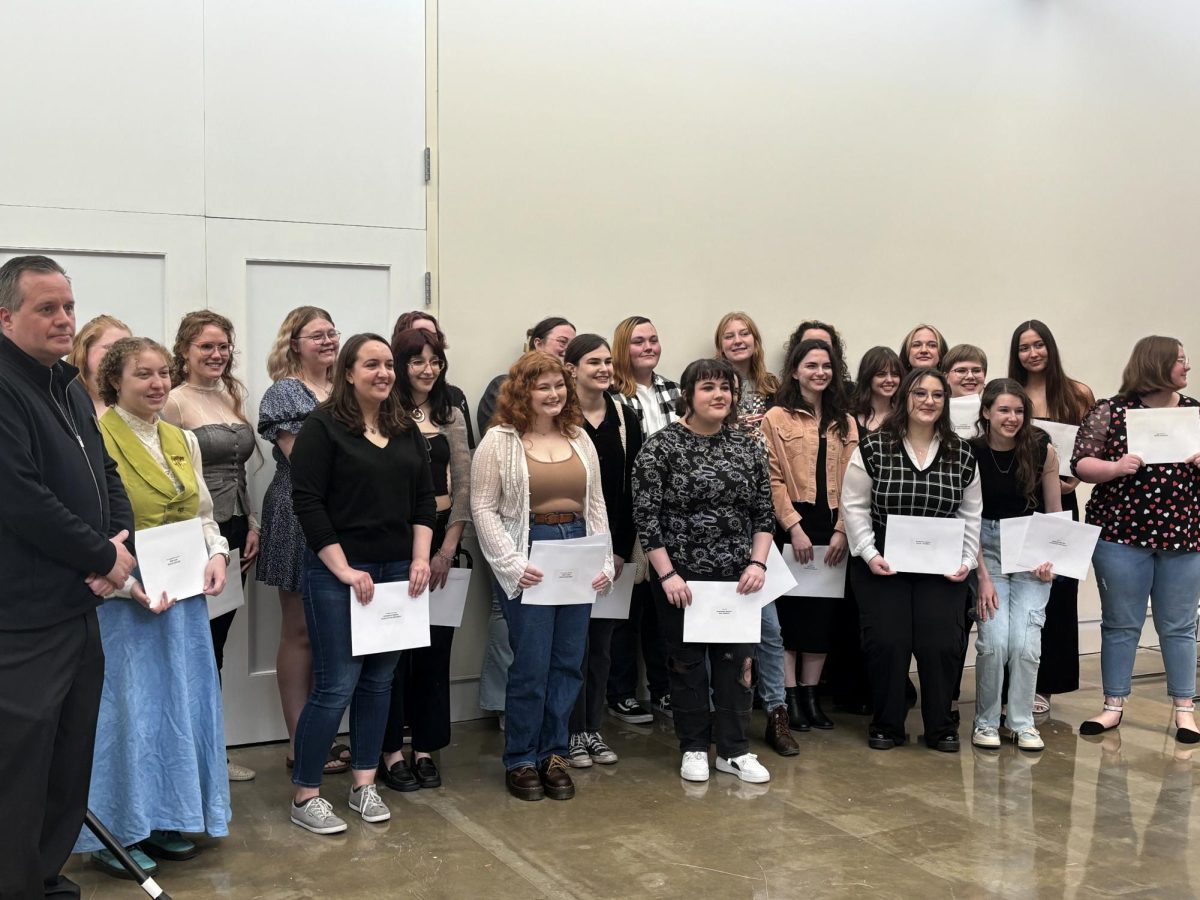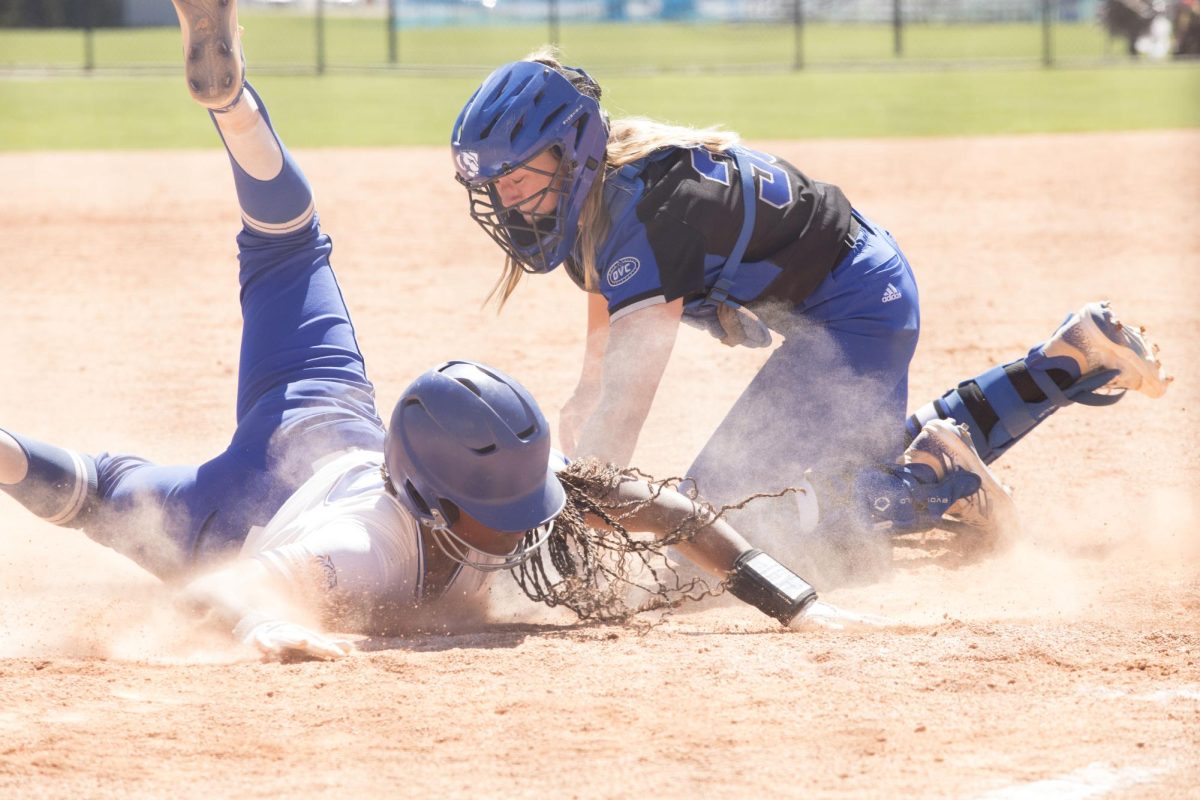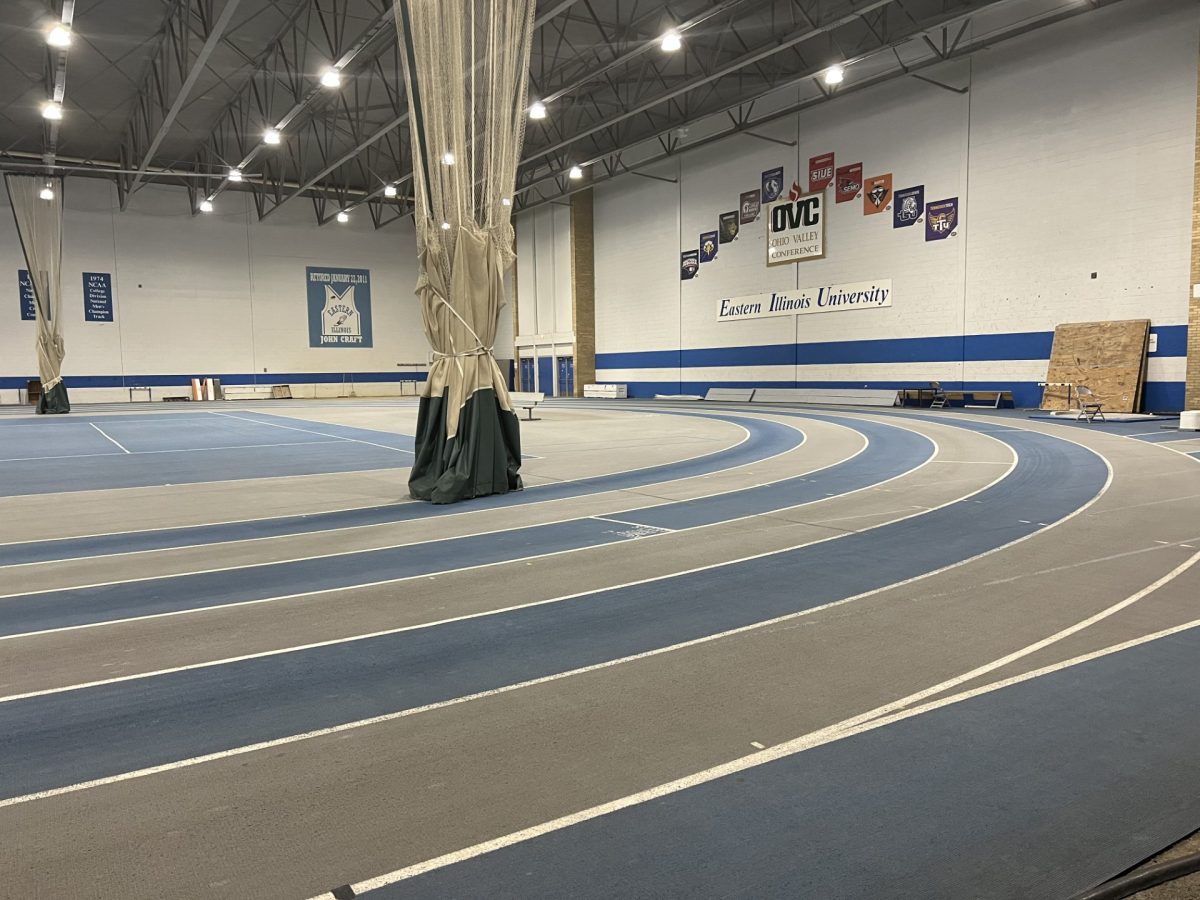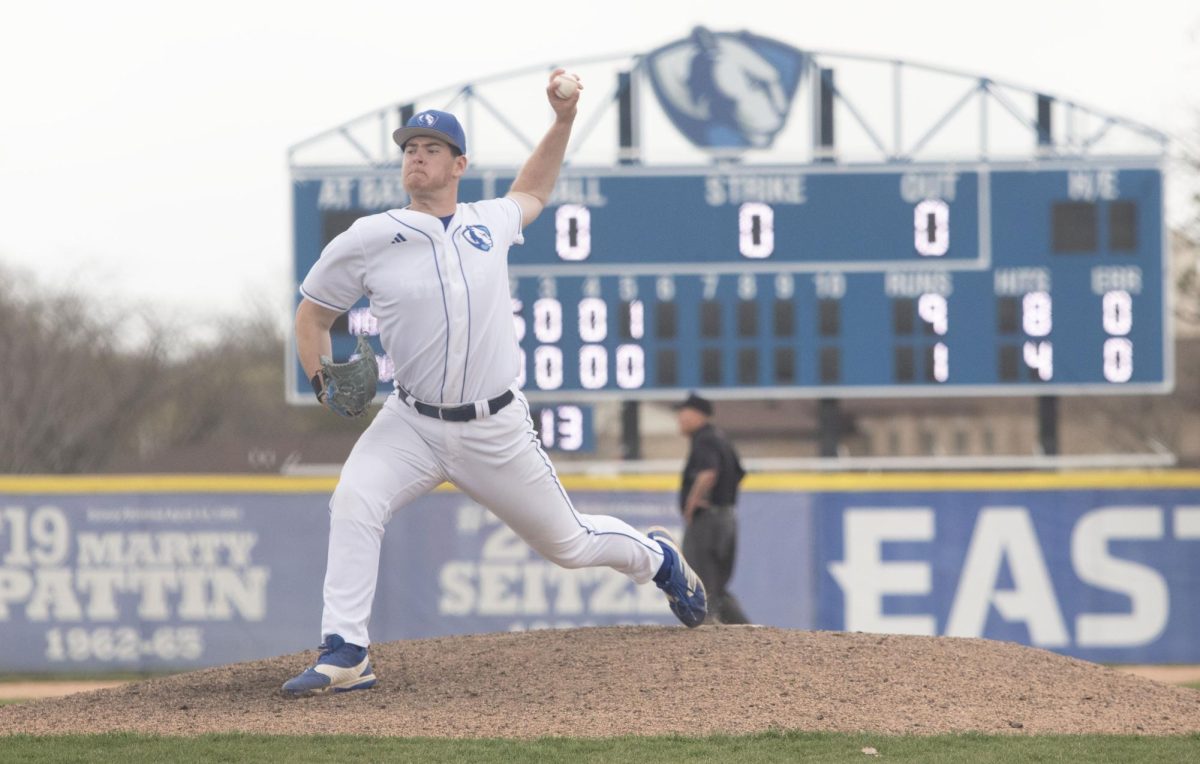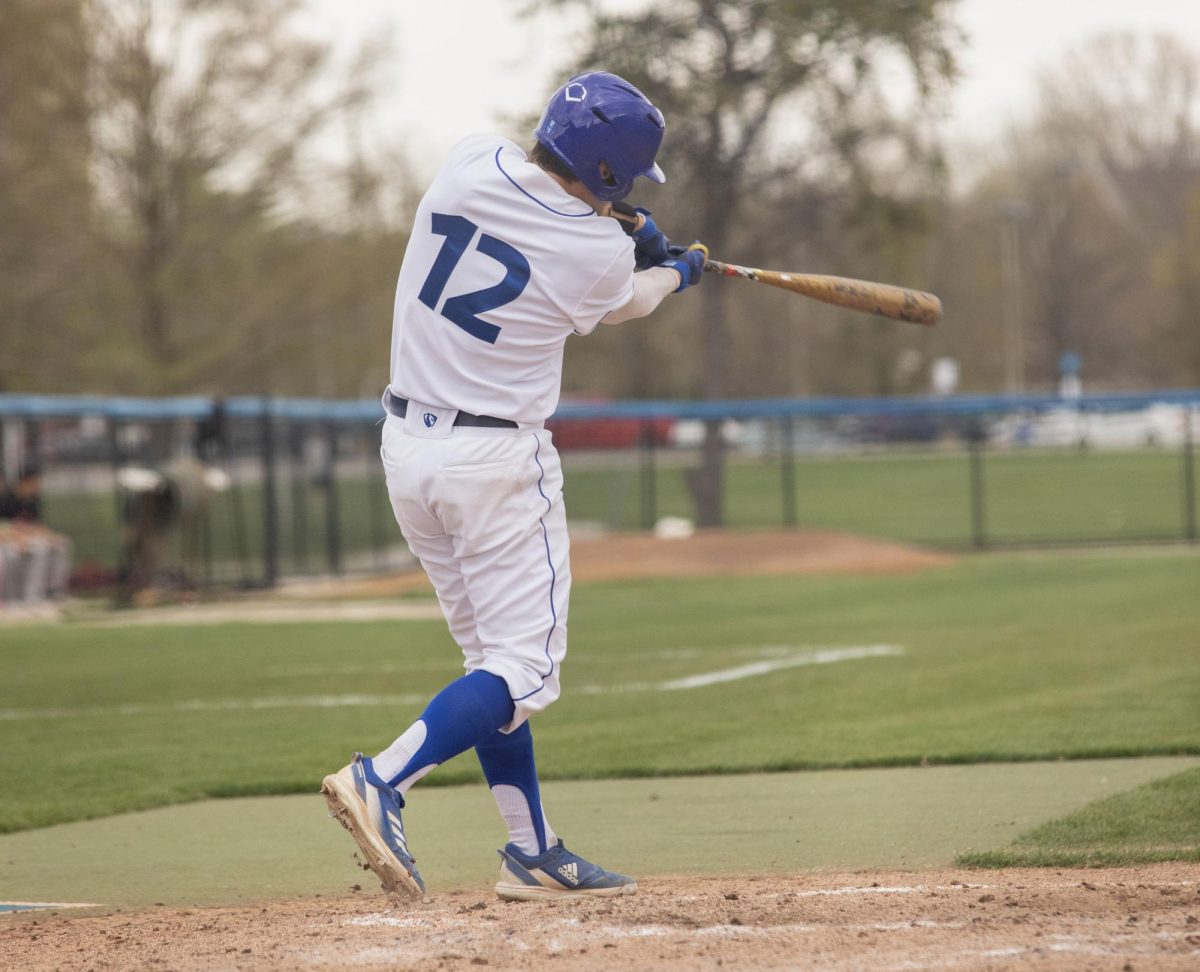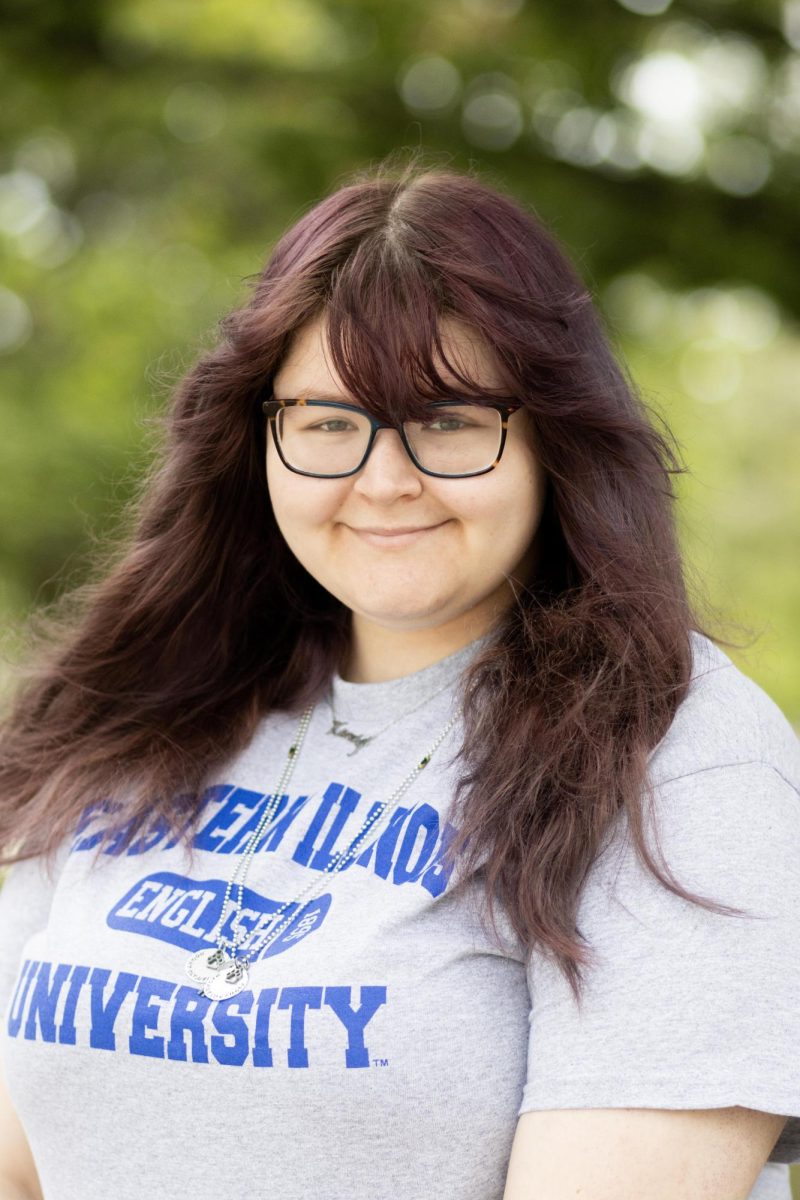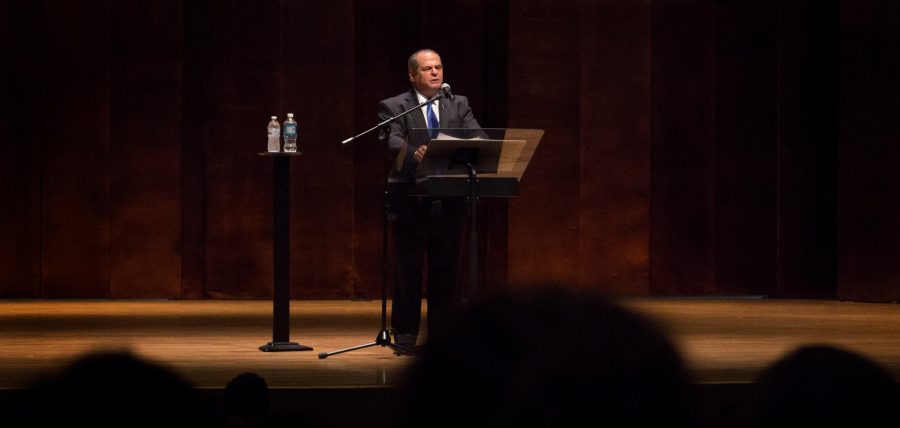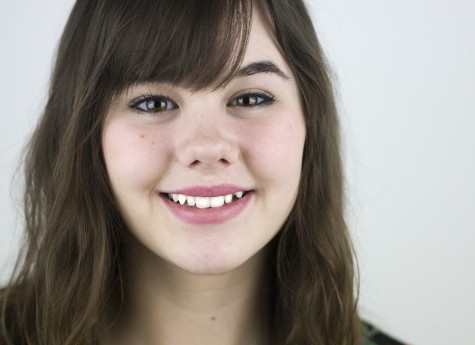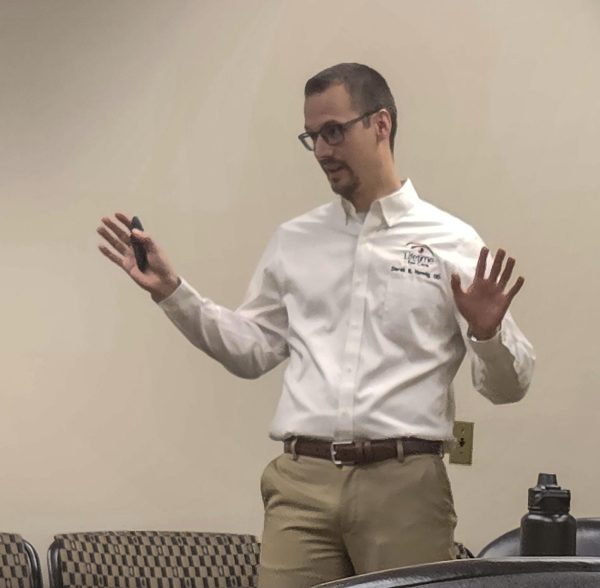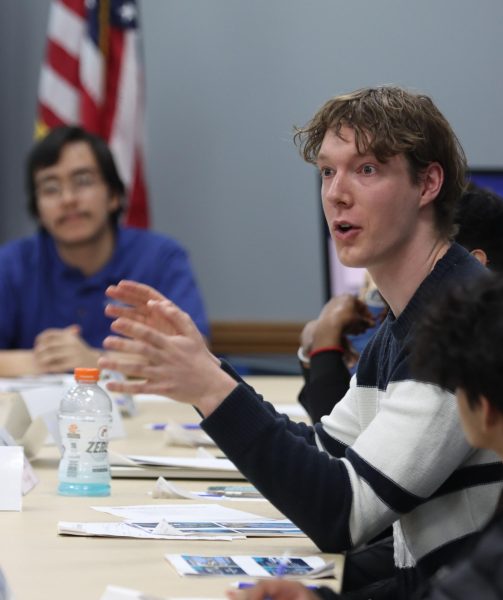Glassman addresses university challenges, talks remedies
President David Glassman speaks of the negative impact on Eastern’s reserve funds due to low enrollment and the state’s inability to pass a budget this past fiscal year during the State of the University Address in the Dvorak Concert Hall of the Doudna Fine Arts Center Wednesday.
September 7, 2016
Eastern President David Glassman talked about challenges that occurred due to low enrollment and the lack of a budget and his plans to remedy them with a Vitalization Project at his State of the University Address.
7,400 students have enrolled at Eastern this fall, while last fall there were 8,520.
“This year’s downward spike in enrollment will be remedied quickly and effectively,” Glassman said.
Though Glassman said Eastern is a strong university, he acknowledged the challenges that have to be overcome going forward.
Although the university has received stopgap funding, the state has not yet passed a budget for FY17 with a full appropriation for higher education.
The stopgap appropriation gave Eastern $12.6 million in FY16. The university’s anticipated appropriation was about $38 million.
Because of this, the school will continue to operate in a way that is financially prudent, especially when using appropriated and tuition dollars.
“And if for nothing else, we now know for sure that a fragile dependency on the state for EIU’s viability is a shaky proposition,” Glassman said.
Glassman said to combat a negative effect on the university’s cash reserve funds caused by the lack of a budget, lower fall 2016 enrollments and negative messages about Eastern, the university needs a plan of strategic solutions to vitalize the campus.
In his speech, Glassman said one thing that needs to change is increased funding of high demand signature programs and student services that attract more students.
“One thing is certain, however, the additional revenue we seek will not come from tuition increases,” he said.
He said the primary variables that would affect change would be increased funding though enrollment growth or reducing costs in other programs or services currently offered that are either over-resourced, not sustainable, or that could be outsourced.
Glassman detailed in the State of the University his plans for a Vitalization Project, which was crafted over the summer.
A task force, president’s liaison subcommittee and nine workgroups will lead the Vitalization Project. These groups are charged with identifying efficiencies, looking at the viability and sustainability of existing services and programs, and enhancements and changes that are likely to increase the marketability and success for increasing student enrollments.
These task force workgroups will be filled over the next two weeks.
The Council for University Planning and Budgeting, the Faculty Senate, Staff Senate, Student Senate, Civil Service Council, Council of Chairs, Dean’s Council and Vice Presidents are encouraged to nominate members, along with self-nominations throughout the university.
Nominations can be sent to the president by emailing [email protected] and will be taken through Wednesday, Sept. 21.
Bob Whittenbarger, a retired sociology and anthropology professor, said it was a good speech under the circumstances.
Whittenbarger described the speech as optimistic, thoughtful and detailed.
Whittenbarger said there is now an opportunity for people to get more involved in how campus can operate.
“I thought he was very thorough in covering the ground he needed to cover,” Whittenbarger said.
Gary Bulla, the interim chair of the department of biological studies, said the speech was very positive. He said it gave a clear way forward how to get over recent setbacks.
“The things he chose were right on topic. I wouldn’t offer any modifications to his talk,” Bulla said.
Bulla said he feels encouraged by Glassman’s strategy. He said he likes how Glassman is going to the faculty and staff and asking them to help out and that it is a great way to get people on board collectively.
Ryan Hendrickson, the interim dean of the graduate school, said he was pleased to hear about the accomplishments of the university during Glassman’s speech.
“I am happy to hear him serve as a champion for Eastern in so many ways,” Hendrickson said.
Mattoon resident Bob Jones, a retired businessman, came to the speech because he is interested in Eastern’s success, particularly when it comes to enrollment and the graduation rate.
He said it is important to keep people in the county and state.
“We need to have a positive message coming out,” Jones said.
Michael Murray, director of development at the Neal Welcome Center, said the Vitalization Project would make a huge difference in the school.
“We need action today,” he said. “We need to move forward now.”
Murray said the school needs to focus on what it needs to do to boost enrollment.
“It’s everything from marketing, we’re going to have to invest in resources in order to get a return on that investment and get enrollment bumped up,” he said.
Samuel Nusbaum contributed to the article.
Cassie Buchman can be reached at 581-2812 or [email protected].





